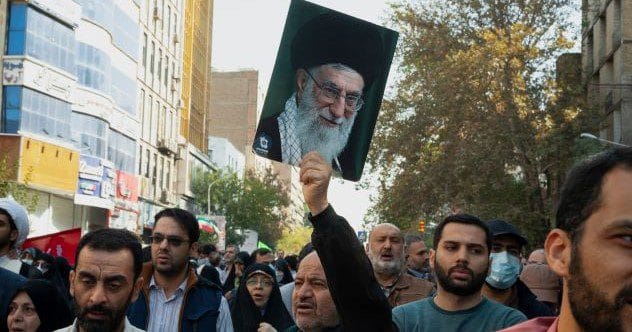In many nations, religion and politics are closely linked, influencing the social, cultural, and legal structures. Religious beliefs often shape political decisions, impacting everything from lawmaking to the conduct of public officials. In some countries, the separation of religion and state is blurred, creating a complex interaction that affects many aspects of life. Religious leaders can wield significant influence over political matters, and religious doctrines can shape policies on education, gender rights, and freedom of expression.
Bhutan
Bhutan, a small Himalayan kingdom, uniquely integrates Buddhism into its governance. Following the Drukpa Kagyu school of Mahayana Buddhism, its laws, culture, and daily life are deeply influenced. The Druk Gyalpo, or King of Bhutan, is both the political leader and the spiritual protector. This role highlights Buddhism’s importance in shaping Bhutanese identity and guiding its policies.
The Bhutanese legal system incorporates Buddhist principles to promote peace, compassion, and social harmony. Traditional Buddhist values, such as non-violence and respect for life, are embedded in its legal framework. The government promotes Gross National Happiness (GNH), prioritizing spiritual and mental well-being over economic growth. GNH, reflecting Buddhist values, assesses the impact of policies on the population’s overall happiness and well-being.
The state supports religious institutions, ensuring alignment with national goals. Monasteries and monastic education receive government funding, and monks often play significant roles in community decisions.[1]
Iran
Iran is an Islamic Republic where religious and political authority are intertwined. After the 1979 revolution, its political system became rooted in Shia Islam, guided by the Velayat-e Faqih doctrine. This gives the Supreme Leader, a religious figure, ultimate control over the government, military, judiciary, and media.
Iran’s government includes elected and unelected components. While there are democratic elements like the President and Parliament, the Supreme Leader and the Guardian Council hold substantial power. The legal system is based on Sharia law, affecting criminal, civil, and family laws. The judiciary, led by an appointee of the Supreme Leader, enforces these laws, blending religious principles with state governance.
This theocratic system results in strict social policies, including dress codes and limits on freedom of speech, to maintain the nation’s Islamic character. Despite calls for reform, Iran’s government remains deeply influenced by its religious ideology.[2]
Brunei
Brunei is a wealthy absolute monarchy where Sultan Hassanal Bolkiah holds ultimate authority. Islam, specifically the Shafi’i school of Sunni Islam, is the official religion, and the legal system is influenced by Sharia law. The Syariah Penal Code Order introduced strict Islamic laws, including amputation, stoning, and flogging.
The Sultan’s decision to implement the Syariah Penal Code faced international condemnation from human rights organizations and Western governments. Critics argue that the code violates fundamental human rights. Despite this, the Sultan defends the implementation as reflecting Brunei’s commitment to Islamic principles. The code applies to both Muslims and non-Muslims, with certain punishments reserved for Muslims.[3]
Eritrea
Eritrea recognizes only four religious groups: the Eritrean Orthodox Tewahedo Church, Sunni Islam, the Roman Catholic Church, and the Evangelical Church of Eritrea. Religious practices outside these groups are prohibited and strictly regulated.
The Eritrean government maintains tight control over religious practices, citing national unity and security. The Office of Religious Affairs oversees activities, requiring recognized groups to register and provide detailed information about their operations. The state intervenes in choosing religious leaders to strengthen its influence.
Members of unrecognized groups, particularly evangelical Christians and Jehovah’s Witnesses, face severe penalties, including imprisonment and torture. Human rights organizations document detentions for religious beliefs, often without formal charges.[4]
Somalia
Somalia’s legal system is deeply intertwined with Islamic principles. The constitution establishes Islam as the state religion, mandating that all laws comply with Sharia law. This influences governance, with Sharia courts operating alongside secular courts to handle family law and personal disputes.
The Somali government faces challenges in extending its influence due to autonomous regions and groups like Al-Shabaab. Al-Shabaab imposes its harsh version of Islamic law in controlled territories, including public executions and amputations. This complicates the legal landscape, making Sharia law application uneven.
Social norms are heavily influenced by Islamic traditions, impacting dress codes and dietary rules. Islamic education is emphasized in schools.[5]
Pakistan
Created as a nation for Muslims in 1947, Pakistan’s legal and political system is linked with Islamic principles. The constitution declares Islam as the state religion, requiring laws to align with the Quran and Sunnah. The President and Prime Minister must be Muslims, and the Council of Islamic Ideology ensures laws comply with Islamic rules.
Sharia law influences Pakistan’s legal system. The Hudood Ordinances enforce Sharia punishments for crimes, though they face criticism, particularly for their impact on women’s rights. Traditional dispute resolution mechanisms often use Sharia principles.[6]
Sudan
Under President Omar al-Bashir, Sudan used Islamic Sharia law as its legal foundation, governing public and private life. This included strict regulations on dress codes and punishments for crimes, embedding Islamic values deeply in Sudanese society.
After al-Bashir’s ousting in 2019, a transitional government promised reforms, aiming for a greater separation between religion and state. Despite these promises, Islamic law’s influence remains significant. The transitional government attempted to abolish harsh Sharia-based laws.
The 2021 military coup has created uncertainty about these reforms, raising concerns about a return to stricter Islamic governance.[7]
Yemen
Yemen’s constitution designates Islam as the state religion, requiring all laws to be based on Islamic Sharia. The president must be a practicing Muslim. Public policies are rooted in Islamic traditions, impacting education and judicial procedures.
The ongoing civil conflict has complicated the relationship between religion and the state. The conflict involves factions like the Houthi movement, which adheres to Zaydi Shia Islam, and the internationally recognized government, which follows Sunni Islam. This has led to a fragmented application of Sharia law.
Houthi-controlled areas have seen stricter implementations of Sharia, affecting women’s rights. Instability has hindered the establishment of a unified legal system.[8]
Maldives
In the Maldives, Islam is the state religion, deeply embedded in the legal and social framework. The constitution mandates that all citizens must be Muslims. Sharia law influences areas like marriage and divorce. Religious police ensure compliance, with violations resulting in severe punishments.
The influence of Islam extends into everyday life and governance. Public holidays are primarily Islamic, and religious education is compulsory. The government monitors religious practices, ensuring alignment with Sunni Islam. This leads to strict regulations on religious expression.[9]
Saudi Arabia
Saudi Arabia is an absolute monarchy with a legal system rooted in Islamic principles. The country is governed by the Quran and the Sunnah. The King holds extensive powers, exercised in accordance with Islamic law, influencing citizens’ personal and public lives.
Religious education is part of the curriculum, and public behavior is regulated by the religious police who enforce Islamic moral standards, such as dress codes and prayer attendance. The government controls religious institutions and appoints religious leaders.[10]
In conclusion, the intertwining of religion and politics varies significantly across the globe. From Bhutan’s Buddhist-influenced governance to Saudi Arabia’s Islamic law-based monarchy, these countries demonstrate the diverse ways religion shapes national identity, laws, and social norms. Understanding these dynamics is crucial for comprehending the complexities of global politics and cultural landscapes.
What are your thoughts on the intersection of religion and politics? Share your perspective in the comments below!










